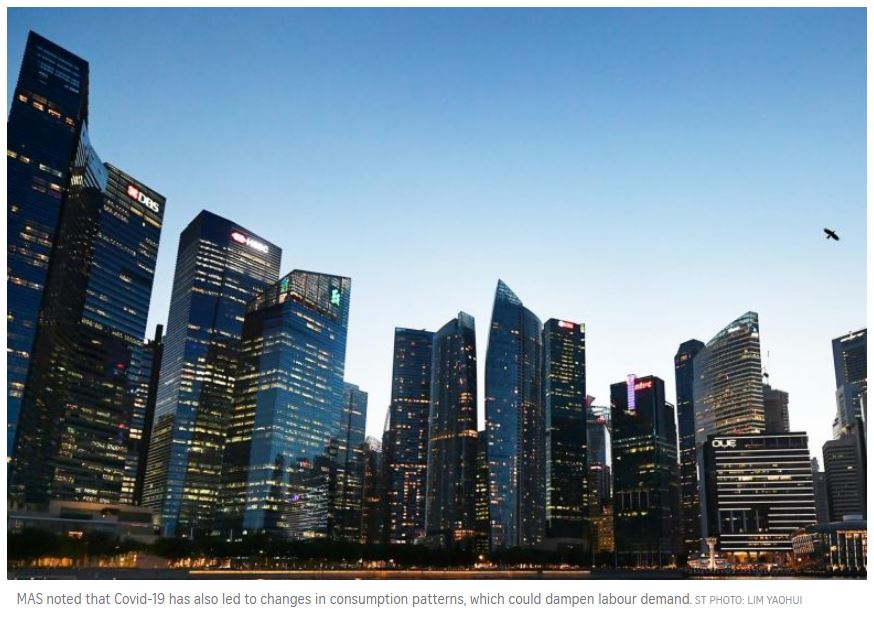Job recovery in Singapore likely slow and uneven despite immediate rebound in retail, F&B: MAS
SINGAPORE – The road to recovery for the labour market is likely to be slow and uneven, with resident unemployment rates taking a longer time to reach pre-crisis levels compared with during the global financial crisis, said the Monetary Authority of Singapore (MAS).
In its review of the macroeconomic situation released on Wednesday (Oct 28), MAS said the unemployment rate of Singaporeans and permanent residents is expected to decrease gradually next year after peaking in the second half of 2020, but will remain elevated overall.
It added that this will weigh on wages for the rest of this year and possibly into 2021.
These projections for the labour market are despite employment prospects looking up in the immediate term in the retail and food and beverage (F&B) sectors, and in support services such as cleaning and security industries.
These business areas rebounded quickly with Singapore exiting the circuit breaker in June, said MAS.
In construction, the gradual resumption of activities in the second half of this year would also likely lead to more hiring.
As for the travel-related sector, MAS said some modest employment recovery can be expected with the easing of safe distancing measures and, in particular, the resumption of meetings, incentives, conventions and exhibitions (Mice) events and some cruise operations.
However, longer term recovery will be protracted, as activity in the travel-related sector is expected to be weak for an extended period of time, leading to spillovers to the rest of the economy which will weigh on the overall labour market.
These include land transport operators such as taxi and private hire car services, which have likely seen a sizeable shortfall in income due to the lack of inbound leisure and business travellers.
MAS noted that Covid-19 has also led to changes in consumption patterns, which could dampen labour demand.
For example, working from home could become more prevalent, reducing demand for transportation services as well as social and recreational activities.
The uncertain macroeconomic outlook will also hold back overall labour market prospects, as activity in many sectors could be weaker than expected with further balance sheet strains, said MAS.
This is likely so even in better-performing industries, as firms may have brought forward hiring, encouraged by temporary government incentives such as the Jobs Growth Incentive.
But when compared with foreign employment, local employment is expected to rebound more strongly, partly due to government wage subsidies supporting the hiring of locals.
However, the resident unemployment rate will likely take a longer time to recover than during the global financial crisis.
Residents who were previously discouraged from seeking employment could re-enter the labour force as the economy recovers, and individuals under the SGUnited training programmes could add to the number of unemployed workers when looking for jobs.
Skills mismatches could also hamper hiring, as Covid-19 is likely to accelerate the decline of low- and mid-skill services jobs being replaced by less labour-intensive, automated processes.
More jobs are expected mainly in modern services sectors, which includes firms that provide professional, financial and technology services such as cyber security and banking services.
“These emergent skills mismatches between excess labour supply and new labour demand may increase search frictions and impede labour market re-allocation,” said MAS.
Source: https://www.straitstimes.com/singapore/jobs/job-recovery-in-singapore-likely-slow-and-uneven-despite-immediate-rebound-in-retail


 English
English




